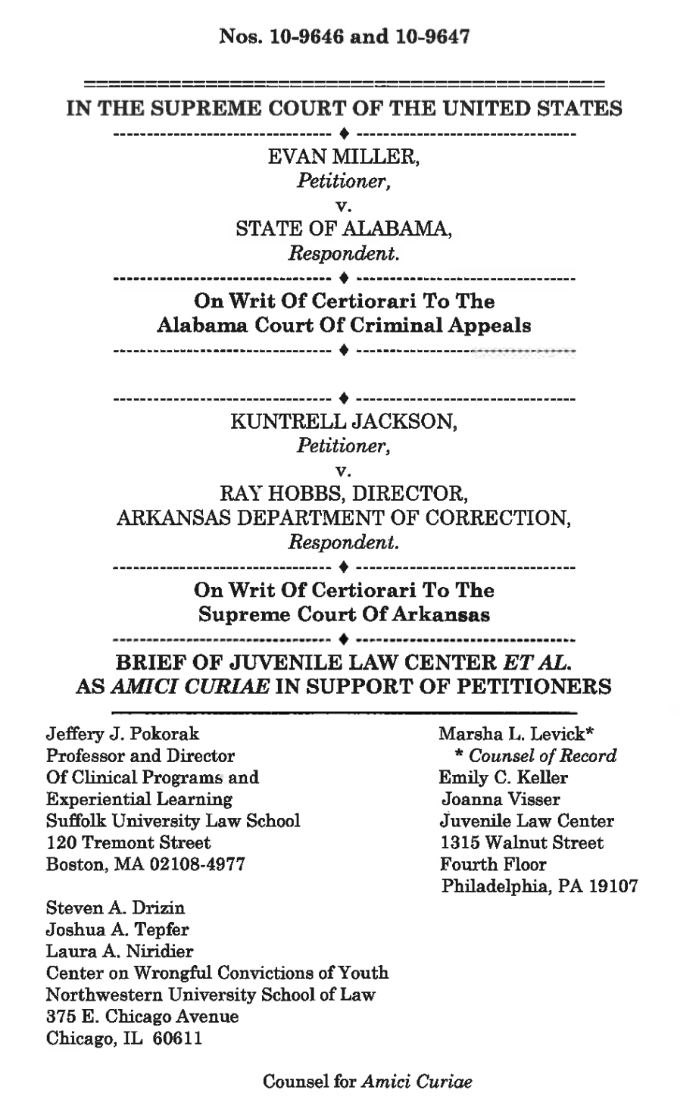
Summary of Argument
The imposition of life without parole sentences on juveniles violates the Cruel and Unusual Punishments Clause of the Eighth Amendment. As the Supreme Court has held, juvenile offenders are categorically different from adult offenders in constitutionally relevant ways. According to settled research, juveniles are immature in their judgment and decision-making capacities, they are especially susceptible to negative peer pressures, and they are uniquely capable of transformation and rehabilitation. As found in Roper v. Simmons and Graham v. Florida, juveniles as a class are less culpable for their criminal conduct than adults.
Culpability is a cornerstone of our criminal justice system, and it is central to ensuring that sentences are rational and proportional under the Eighth Amendment. Traditionally, the Court has looked primarily to the nature of the offense to assess proportionality. In the case of juveniles, this Court has modified its traditional Eighth Amendment analysis to focus specifically on the unique attributes and characteristics of the juvenile offender in reviewing the constitutionality of sentences. The reduced culpability of juveniles renders life without parole sentences inherently disproportionate under the Eighth Amendment and thus categorically impermissible.
In the instant cases, the sentencing schemes in Alabama and Arkansas compound the constitutional infirmity of a life without parole sentence. In both cases, the sentences were mandatory. Following this Court's reasoning in striking mandatory death Sentences under the Eighth Amendment, mandatory juvenile life without parole sentence by its nature precludes considerations of the individual juvenile offender or the circumstances of his crime. Absent these considerations neither the sentencer nor the reviewing court have any ability to assess the proportionality of the sentence to a particular juvenile. A mandatory scheme thus precludes constitutionally relevant evidence of youth, lesser criminal involvement, and potential for maturity and therefore impermissibly taints the reliability of the sentence. Additionally, Jackson's lifewithout parole sentence following a conviction of felony murder is squarely at odds with this Court's holding in Graham that juveniles who neither kill, intend to kill, or foresee that life will be taken are constitutionally ineligible for such sentences.
Finally, this Court has repeatedly acknowledged that the risk of wrongful convictions is of concern in evaluating the harshest sentences imposed on certain categories of offenders. Research demonstrates that juveniles are particularly at risk of giving false confessions because of their developmental characteristics, further supporting increased scrutiny of such sentences under the Constitution.